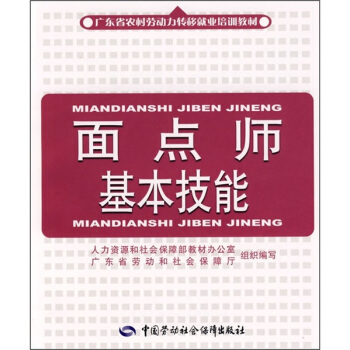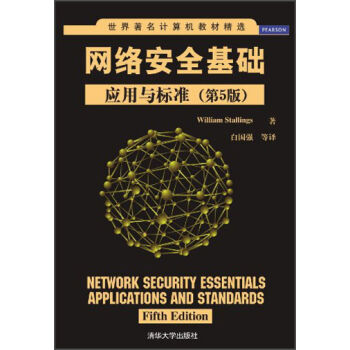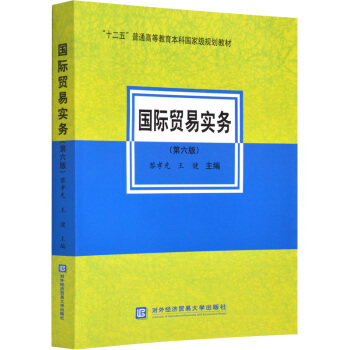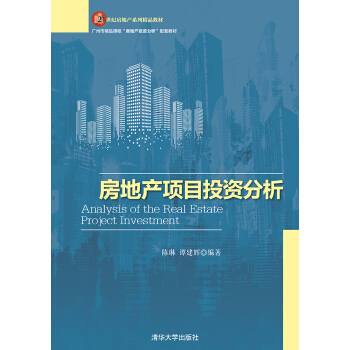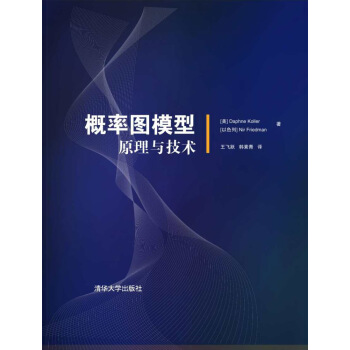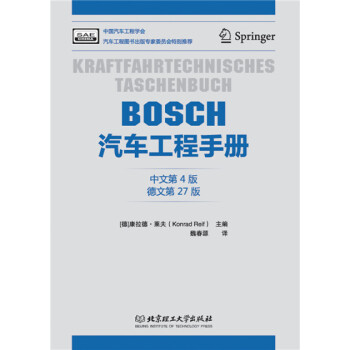

具体描述
内容简介
《高电压技术专业英语阅读教程》以专业词汇学习和专业知识探索为主线条,编撰了高压技术基础知识和技术的专业英语文集,其中包括气、液、固态及复合电介质放电机理,高电压试验技术,高电压设备知识,极端条件下电介质放电现象研究,以及气体放电过程的非线性动力学现象等。《高电压技术专业英语阅读教程》力争涵盖本专业的英语词汇并尽可能为增强专业知识提供专业前沿信息,可作为高等院校电气工程类高电压技术专业的高年级学生及研究生的专业英语阅读教材,也可供从事高电压电介质放电现象研究的科技人员与高压电气绝缘配合及结构设计的工程技术人员参考。
内页插图
目录
Unit 1 Gas Discharge Phenomena 1.1 Classification of Discharges 1.2 Current-voltage Characteristics of DC Discharge1.2.l Non-self-sustaining Discharge1.2.2 Townsend Discharge1.2.3 Glow Discharge1.2.4 Transition to Arc Discharge 1.3 Townsend Breakdown 1.4 Production and Loss of Charges in a GasUnit 2 Non-Destructive High-voltage Tests 2.1 Loss in a Dielectric 2.2 Measurement of the Conduction Current for Direct Voltage 2.3 Measurement of the Dissipation Factor for Alternating Voltage2.3.1 Dielectric Loss and Equivalent Circuits2.3.2 Measurement with the Sobering Bridge 2.4 Measurement of Partial Discharges at Alternating Volfages2.4.1 External Partial Discharges2.4.2 Internal Partial DischargesUnit 3 Liquid and Composite Dielectrics 3.1 Liquid Characteristics 3.2 Solid Dielectrics 3.3 Composites 3.4 Estimation ancl Control of Electrical 3.5 Electric Fields 3.6 Uniformanci Non-Uniform Electric Fielcis 3.7 Estimation of Electric Field in Some Geometric Boundaries3.7.1 Parallel Plates3.7.2 Concentric Cylinders3.7.3 Parallel Cylinders of Equal Diameter 3.8 Surge Voltages, Their Distribution Anti ControlUnit 4 Breakdown in Air Gaps with Solid Insulating Barrier under Impulse Voltage Stress 4.1 Introduction 4.2 The First Approach for the Understanding of the Barrier Effect 4.3 Barriers with Opening 4.4 In Depth Investigation of the Breakdown Process 4.5 Quantitative Analysis of Spaces Charges 4.6 Flashover Around the Barrier without Penetration 4.7 Barrier Effect in Symmetric Fields 4.8 Investigations with Other Types of Voltages 4.9 ConclusionsUnit 5 Specialized Knowledge of Cables 5.1 Material Technology 5.2 Conductor and Insulation Screens 5.3 Cable Design 5.4 Manufacturing 5.5 Installation Design 5.6 Joints/Terminations 5.7 Minute Step Voltage TestUnit 6 Treeing Phenomena of XLPE Cable 6.1 Introcluction 6.2 Failures ofXLPE Cable6.3 Treeing Phenomena in XLPE Cables6.4 Electrical Trees and Mechanisms6.5 Water Treesand MechanismsUnit 7 Specialized Knowledge of Power Transformers 7.1 Features 7.2 Core 7.3 Winding7.3.1 Hisercap Disk Winding (Interleaved Disk Winding)7.3.2 Continuous Disk Winding7.3.3 Helical Coil 7.4 Insulation Structure 7.5 Prevention of Internal Partial Discharge and Insulation7.5.1 Treatment7.5.2 Drying/Oil Filling Treatment7.5.3 Removing Voids7.5.4 Electric Field Control7.5.5 Dust Control 7.6 Measures against Leakage Flux 7.7 Tank 7.8 Cooling System7.8.l Self-cooled Type7.8.2 Air-cooled-air-cooled7.8.3 Forced-oil, Forced-air-cooled Type7.8.4 Forced-oil, Water-cooled Type 7.9 Accessories7.9.1 Oil Preservation System7.9.2 Diaphragm-type Oil Preservation System (Type OH-D)7.9.3 Dehydrating Breather (Types FG, FP, FS)7.9.4 Dial Oil Level Indicator7.9.5 Protective Relays7.9.6 Buchholtz Relay7.9.7 Liquid Temperature Indicator7.9.8 Winding Temperature Indicator Relay7.9.9 Pressure Relief Device 7.10 Low-noise Transformer 7.11 Construction of Cable Connection and GIS7.11.1 Connection Cable Connection7.11.2 GIS (Gas Insulated Switchgear) Connection7.11.3 TransportationUnit 8 Investigation of Sub-Nanosecond Breakdown through Computational Methods, 8.1 Introduction 8.2 Background Theory and Prior Research8.2.1 Background Discharge Regimes in Pulsed Breakdown8.2.2 Townsend Regime8.2.3 Streamer Regime8.2.4 Post Streamer Regime 8.3 Physical Processes in Picosecond Breakdown8.3.1 Field Emission8.3.2 Electron-Neutral Collisions8.3.3 Runaway Electrons8.3.4 Explosive Electron Emission 8.4 Recent Research EffortsUnit 9 Numerical Simulation of Gas Discharge 9.1 Governing Equations9.1.1 Two-Fluid Theory9.1.2 Coefficients9.1.3 Boundary Conditions 9.2 Model Eauations in Dimensionless Form9.2.1 Numerical Approach and Results9.2.2 Grid and Discretization9.2.3 8-Method9.2.4 Time Step and Iteration9.2.5 Boundary Conditions and Error 9.3 One Dimensional Model9.3.1 Thomas Algorithm and Results9.3.2 Two Dimensional Model9.3.3 Successive Over Relaxation Method9.3.4 Results9.3.5 Convergence 9.4 Dynamic Characteristics of SF6-N2-CO2 Gas Mixtures in DC Discharge Process9.4.1 The Hybrid Computing Model9.4.2 Development of the Avalanche and Streamer9.4.3 Spatial Electric Field and Electron Velocity9.4.4 Influence of PhotoionizationUnit 10 Pattern Dynamics in a Two-dimensional Gas Discharge System 10.1 Introduction 10.2 Experiment 10.3 Model10.3.1 Assumption10.3.2 Specific Model10.3.3 Constraint for the Constant Total Charge10.3.4 Flowing Charge Density10.3.5 Parameter Setting 10.4 Phenomena10.4.1 Preparation: Behavior of Each Element Under the Global Constraint10.4.2 Global Phase Diagram10.4.3 DS Phase10.4.4 LS Phase10.4.5 Moving Spot Phase 10.5 Summary and Discussion10.5.1 Summary10.5.2 Comparison with the Experiment by Nasuno10.5.3 Discussion附录1 高电压技术常用词汇中英文对照附录2 绝缘介质电特性中英文对照附录3 美国工程索引(EI)对文摘的要求参考文献前言/序言
用户评价
在我的科研生涯中,阅读英文文献是不可避免的一环,尤其是在高电压技术这样一个高度国际化的领域。然而,面对那些充斥着专业术语和复杂句式的论文,我常常感到力不从心,仿佛置身于一片信息海洋的迷雾之中。《高电压技术专业英语阅读教程》这本书的出现,如同一盏明灯,照亮了我前进的道路,为我打开了通往专业英语阅读世界的大门。 这本书最令我赞赏的是其内容的专业性和前沿性。它精选的阅读材料,并非泛泛而谈的通用英语,而是紧密围绕高电压技术的核心领域展开。从高电压的产生、测量,到绝缘介质的特性、放电的机理,再到高电压试验技术、电磁兼容性等,书中涵盖了该领域几乎所有重要的研究方向和技术热点。这让我能够在学习英语的同时,不断充实和更新我的专业知识,实现“学有所用”。 书中对复杂句式的拆解和分析,堪称一绝。高电压技术文献中充斥着大量长难句,包含各种从句、非谓语动词、插入语等,常常让人难以把握句子的主干。本书则采取了一种“手术刀”式的分析方法,将复杂的句子逐层剖析,清晰地呈现其语法结构和逻辑关系。通过对大量例句的讲解,我不仅学会了如何理解这些复杂句式,更掌握了分析和构建句子的技巧,这极大地提升了我独立阅读英文文献的能力。 在专业词汇的处理上,本书也做到了极致。它不仅仅提供简单的中文翻译,更会深入解析词汇在高电压技术领域内的专业含义、惯用搭配,甚至是相关的科学背景。例如,对于“corona discharge”这个词,书中会详细解释其发生的条件、产生的后果,以及相关的抑制方法。这种深度解析,让我对专业词汇的理解不再停留在表面,而是能够深入到其背后的科学原理。 本书的阅读材料组织方式也极具智慧。它根据文章的难度和主题,进行了科学的编排,从入门级的概念介绍,到中级的技术原理阐述,再到高级的学术论文节选,循序渐进,让读者在挑战中不断进步。这种“螺旋式上升”的学习模式,让我能够持续地感受到学习的乐趣和成就感。 我之前也接触过一些其他的专业英语读物,但很多都显得过于陈旧,或者内容不够聚焦,无法真正解决我在高电压技术领域阅读时遇到的实际问题。《高电压技术专业英语阅读教程》则不同,它精准地抓住了高电压技术专业英语的特点,并提供了切实有效的解决方案。 更让我惊喜的是,书中在对文章的分析过程中,经常会引导读者进行批判性思考。它不仅仅让你理解作者的观点,更鼓励你去思考作者的论证过程是否严谨,证据是否充分,是否存在其他可能的解释。这种思维训练,对于培养研究者的独立思考能力和信息辨别能力,有着不可估量的价值。 本书的练习题设计也十分巧妙,它们不仅巩固了词汇和句型,更重要的是,鼓励你去运用所学的知识来解决问题,或者去阐述自己的观点。这种“学用结合”的模式,让学习过程充满了活力和价值。 总而言之,《高电压技术专业英语阅读教程》这本书,是我在高电压技术领域学术探索中遇到的宝贵财富。它不仅帮助我克服了专业英语阅读的障碍,更让我能够以更自信、更高效的姿态去接触和理解国际前沿的学术信息。我真诚地推荐这本书给所有在高电压技术领域学习和工作的同行们,我相信它会为你们带来和我一样的深刻的启发和巨大的帮助。
评分作为一名在高电压技术领域深耕的研究者,我深知英文文献阅读能力的重要性。它如同打开国际学术大门的钥匙,是获取前沿知识、参与国际交流的关键。然而,过去的很长一段时间里,我一直被晦涩的专业术语和复杂的句式所困扰,阅读效率低下,常常感到力不从心。直到我接触到《高电压技术专业英语阅读教程》这本书,我才终于找到了突破口,看到了曙光。 这本书最让我印象深刻的是它对高电压技术学科的深度理解和精准把握。书中精心挑选的阅读材料,几乎覆盖了该领域的所有核心内容,从高电压的产生与测量,到绝缘介质的特性与失效,再到电晕放电、雷电防护等关键技术,无一不包。这让我能够在学习英语阅读技巧的同时,也能够系统地复习和巩固我的专业知识,形成一种双赢的学习模式。 对于那些常常让我望而却步的长难句,这本书提供了“化繁为简”的绝佳方法。它会耐心细致地分析句子的语法结构,找出主谓宾,并层层剥离修饰性的成分,帮助读者清晰地理解句子的核心意思。通过大量的例句解析,我学会了如何识别和分析复杂的从句、非谓语动词等,大大提高了我的句子理解能力。 在专业词汇的讲解上,本书更是做到了极致的专业和细致。它不仅仅提供简单的中英对照,更会深入地挖掘词汇在高电压技术领域的特定含义、惯用搭配,甚至是相关的科学原理。例如,对于“dielectric strength”这个词,书中会详细解释其物理意义、影响因素,以及在不同材料上的表现。这种深度解析,让我对专业词汇的理解不再停留在表面,而是能够深入到其背后的科学原理。 本书的阅读材料编排也极具智慧。文章的难度是循序渐进的,从对基础概念的介绍,到对技术细节的深入探讨,再到对最新研究成果的展示,都能够让读者在挑战中不断进步。这种“螺旋式上升”的学习模式,让我始终保持着学习的动力和热情。 我之前也尝试过一些其他的专业英语读物,但很多都显得过于陈旧,或者内容不够聚焦,无法真正帮助我解决在高电压技术领域阅读时遇到的实际问题。《高电压技术专业英语阅读教程》则恰恰填补了这一空白,它就像一位经验丰富的高电压技术专家,用清晰、精炼的语言,为你解读专业文献的奥秘。 让我尤其感到欣喜的是,书中在对文章的分析过程中,经常会引导读者进行批判性思考。它不仅仅让你理解作者的观点,更鼓励你去思考作者的论证过程是否严谨,证据是否充分,是否存在其他可能的解释。这种思维的训练,对于培养研究者的独立思考能力和信息辨别能力,有着不可估量的价值。 本书的练习题设计也十分巧妙,它们不仅巩固了词汇和句型,更重要的是,鼓励你去运用所学的知识来解决问题,或者去阐述自己的观点。这种“学用结合”的模式,让学习过程充满了活力和价值。 总而言之,《高电压技术专业英语阅读教程》这本书,是我在高电压技术领域学术探索道路上遇到的最宝贵的财富之一。它不仅帮助我扫清了专业英语阅读的障碍,更让我能够以更广阔的视野去接触和理解这个领域的最新发展。我真心希望所有在高电压技术领域深造和工作的同行们,都能有机会阅读这本书,我相信它会给你们带来和我一样的深刻的启发和巨大的帮助。
评分作为一名在高电压技术领域摸索多年的研究者,我深切体会到英文文献阅读能力对于学术进步的重要性。然而,专业术语的陌生、学术表达的晦涩,常常让我深感力不从心。《高电压技术专业英语阅读教程》这本书的出现,简直是解决了我的一个巨大痛点,让我看到了专业英语阅读的希望和方法。 这本书最打动我的地方,在于它对于高电压技术这一复杂学科的精准把握和系统性梳理。书中选取的阅读材料,覆盖了从高电压产生与测量、绝缘技术、放电现象,到电磁兼容性、雷电防护等诸多关键领域。这不仅仅是英语阅读的训练,更是一次对高电压技术知识体系的系统回顾和深化。我发现在阅读英文文献的同时,我也在不断地巩固和拓展着我对专业知识的理解。 对于那些动辄几十个单词的复杂长句,这本书的解析方式简直是“化繁为简”的教科书。它不只是简单地给出翻译,而是会深入地剖析句子的语法结构,找出句子的核心成分,并层层剥离修饰性的词语和从句。通过学习书中大量的例句分析,我学会了如何识别和理解那些看似令人望而生畏的句式,并且逐渐能够独立地分析新的复杂句子。这种技能的培养,让我信心倍增。 书中在专业词汇的讲解上,也做得极其出色。它不仅仅提供字面意思,更会深入挖掘词汇在高电压技术领域的特定含义、惯用搭配,甚至会涉及一些专业缩写及其全称。例如,对于“dielectric breakdown”这个术语,书中会详细解释其发生的机理、影响因素,以及相关的测试标准。这种“知其然,更知其所以然”的讲解,让我对专业术语的理解不仅仅停留在表面,而是触及到了其内在的科学原理。 本书的阅读材料安排,也体现了作者的良苦用心。文章的难度是循序渐进的,从对基础概念的介绍,到对具体技术问题的探讨,再到对前沿研究成果的展示,能够让读者在不断挑战中获得进步。而且,每篇文章的结构都相对清晰,逻辑性强,方便读者把握文章的主旨和论证思路。 我之前也尝试过一些其他的专业英语学习材料,但很多要么过于宽泛,无法深入到高电压技术领域;要么内容更新不够及时,无法反映最新的技术进展。而《高电压技术专业英语阅读教程》则精准地填补了这一空白。它就像一位经验丰富的高电压技术专家,用清晰的语言为你解读专业文献的奥秘。 更让我惊喜的是,书中在文章分析中,常常会引导读者进行批判性思考。它不仅仅是让你理解作者的观点,更会鼓励你去思考作者的论证是否严谨,证据是否充分,是否存在其他可能的解释。这种思维方式的培养,对于任何一位追求学术严谨的研究者来说,都至关重要。 这本书的练习设计也非常具有针对性。它们不仅仅是简单的填空或选择题,而是包含了对文章内容的理解、归纳、总结,甚至是一些开放性的讨论题。这些练习能够全面地检验读者对文章的掌握程度,并促使读者主动地去运用所学的知识。 总而言之,《高电压技术专业英语阅读教程》这本书,是我在高电压技术领域求学和研究道路上遇到的重要工具。它以其专业、系统、深入的讲解,帮助我克服了在专业英语阅读方面遇到的种种困难,极大地提升了我获取和理解国际前沿技术信息的能力。我强烈推荐这本书给所有从事高电压技术相关工作的同行们,相信你们也一定会从中受益匪浅。
评分我一直认为,高电压技术是一个充满挑战但也极其迷人的领域,而想要深入理解它的精髓,掌握其最新的发展动态,英文文献的阅读能力是必不可少的。然而,坦白说,我在这方面曾遇到了不小的瓶颈。单词的晦涩、句式的复杂、以及专业术语的跳跃性,都曾让我备感挫败。直到我翻阅了《高电压技术专业英语阅读教程》这本书,我才意识到,原来专业英语阅读,也可以如此的系统、如此的深入、如此的有方法。 这本书最让我眼前一亮的地方,在于它对高电压技术核心知识体系的深入理解和精准呈现。它所选取的阅读材料,几乎涵盖了该领域的所有重要分支,从高电压的产生和测量,到绝缘介质的性能和失效机理,再到电晕放电、雷电防护等关键技术,无一不包。这不仅仅是在训练我的英语阅读能力,更是在不知不觉中,帮助我系统地梳理和巩固了我的专业知识,形成了一个更全面、更深入的知识体系。 书中对于复杂句型的解析,可谓是“化繁为简”的艺术。我经常会在阅读一篇英文论文时,被那些长得令人难以置信的句子所困扰,主语、谓语、宾语仿佛被层层包裹,让人难以找到核心意思。而这本书,则用一种非常清晰、非常有条理的方式,将这些复杂的句子拆解开来,逐层剖析其语法结构,找出其核心逻辑。通过大量的例句分析,我学会了如何自己去拆解和理解那些“天书”般的句子,大大提升了我阅读的效率和信心。 此外,在专业词汇的讲解方面,本书也做到了极致的专业和细致。它不仅仅提供简单的中英对照,更会深入地挖掘词汇在高电压技术领域内的具体含义、相关的科学原理,甚至是历史演变。例如,对于“dielectric strength”这个词,书中会详细解释其物理意义、影响因素,以及在不同材料上的表现。这种“知其然,更知其所以然”的讲解方式,让我对专业词汇的理解,上升到了一个全新的高度,摆脱了死记硬背的窘境。 本书的阅读材料编排,也体现了作者的匠心独运。文章的难度是循序渐进的,从对基础概念的介绍,到对技术细节的深入探讨,再到对最新研究成果的展示,都能够让读者在挑战中不断进步。这种“由浅入深”的学习模式,让我始终保持着学习的动力和热情。 我曾经也尝试过一些其他的专业英语读物,但很多都流于表面,或者内容更新不够及时,无法真正帮助我解决在高电压技术领域阅读时遇到的实际问题。《高电压技术专业英语阅读教程》则恰恰填补了这一空白,它就像一位经验丰富的高电压技术专家,用清晰、精炼的语言,为你解读专业文献的奥秘。 让我尤其感到欣喜的是,书中在对文章的分析过程中,经常会引导读者进行批判性思考。它不仅仅让你理解作者的观点,更鼓励你去思考作者的论证过程是否严谨,证据是否充分,是否存在其他可能的解释。这种思维的训练,对于培养研究者的独立思考能力和信息辨别能力,有着不可估量的价值。 本书的练习题设计也十分巧妙,它们不仅巩固了词汇和句型,更重要的是,鼓励你去运用所学的知识来解决问题,或者去阐述自己的观点。这种“学用结合”的模式,让学习过程充满了活力和价值。 总而言之,《高电压技术专业英语阅读教程》这本书,是我在高电压技术领域学术探索道路上遇到的最宝贵的财富之一。它不仅帮助我扫清了专业英语阅读的障碍,更让我能够以更广阔的视野去接触和理解这个领域的最新发展。我真心希望所有在高电压技术领域深造和工作的同行们,都能有机会阅读这本书,我相信它会给你们带来和我一样的深刻的启发和巨大的帮助。
评分在我多年的学术研究生涯中,与高电压技术相关的英文文献是我获取知识、了解前沿的重要途径。然而,那些晦涩难懂的专业词汇和极其复杂的句子结构,常常让我深感沮丧,阅读效率低下。直到我发现了《高电压技术专业英语阅读教程》这本书,我才真正感受到了专业英语阅读的“可行性”和“高效性”。这本书就像一位经验丰富的向导,为我打开了通往知识殿堂的清晰路径。 这本书最让我惊艳之处,在于它对高电压技术学科的深度理解和系统呈现。它不仅仅是英语阅读的训练,更是对高电压技术知识体系的全面梳理和深化。书中精选的阅读材料,涵盖了高电压的产生与测量、绝缘技术、放电现象、电磁兼容性、雷电防护等核心领域,每一篇都代表了该领域的经典论述或最新进展。这让我能够在学习英语的同时,不断巩固和拓展我的专业知识,形成一种双赢的学习模式。 对于那些让我感到头疼的长难句,这本书提供了“化繁为简”的解决方案。它会耐心细致地分析句子的语法结构,找出句子的主干,并层层剥离修饰性的成分,帮助读者清晰地理解句子的核心意思。通过学习书中大量的例句解析,我学会了如何识别和分析复杂的从句、非谓语动词等,大大提高了我的句子理解能力。 在专业词汇的讲解上,本书更是做到了极致的专业和细致。它不仅仅提供简单的中英对照,更会深入地挖掘词汇在高电压技术领域的特定含义、惯用搭配,甚至是相关的科学原理。例如,对于“dielectric strength”这个词,书中会详细解释其物理意义、影响因素,以及在不同材料上的表现。这种深度解析,让我对专业词汇的理解不再停留在表面,而是能够深入到其背后的科学原理。 本书的阅读材料编排也极具智慧。文章的难度是循序渐进的,从对基础概念的介绍,到对技术细节的深入探讨,再到对最新研究成果的展示,都能够让读者在挑战中不断进步。这种“螺旋式上升”的学习模式,让我始终保持着学习的动力和热情。 我之前也尝试过一些其他的专业英语读物,但很多都显得过于陈旧,或者内容不够聚焦,无法真正帮助我解决在高电压技术领域阅读时遇到的实际问题。《高电压技术专业英语阅读教程》则恰恰填补了这一空白,它就像一位经验丰富的高电压技术专家,用清晰、精炼的语言,为你解读专业文献的奥秘。 让我尤其感到欣喜的是,书中在对文章的分析过程中,经常会引导读者进行批判性思考。它不仅仅让你理解作者的观点,更鼓励你去思考作者的论证过程是否严谨,证据是否充分,是否存在其他可能的解释。这种思维的训练,对于培养研究者的独立思考能力和信息辨别能力,有着不可估量的价值。 本书的练习题设计也十分巧妙,它们不仅巩固了词汇和句型,更重要的是,鼓励你去运用所学的知识来解决问题,或者去阐述自己的观点。这种“学用结合”的模式,让学习过程充满了活力和价值。 总而言之,《高电压技术专业英语阅读教程》这本书,是我在高电压技术领域学术探索道路上遇到的最宝贵的财富之一。它不仅帮助我扫清了专业英语阅读的障碍,更让我能够以更广阔的视野去接触和理解这个领域的最新发展。我真心希望所有在高电压技术领域深造和工作的同行们,都能有机会阅读这本书,我相信它会给你们带来和我一样的深刻的启发和巨大的帮助。
评分这本书的出现,简直像在我的学术道路上点亮了一盏明灯,尤其是在我深陷于高电压技术专业英语阅读的泥潭时。在此之前,每次面对那些晦涩难懂的英文文献,我都感到无从下手,仿佛置身于一片迷雾之中,单词、句式、专业术语如同巨大的障碍,让我望而却步。然而,当我翻开《高电压技术专业英语阅读教程》这本书时,我惊喜地发现,那些曾经让我头疼的难题,似乎都在这本书的引导下变得清晰起来。 首先,它的结构设计非常合理。不是简单地堆砌大量的专业文章,而是层层递进,从基础的词汇和句型入手,逐步引导读者去理解更复杂的学术表达方式。书中精选的阅读材料,内容涵盖了高电压技术的核心领域,如绝缘介质、放电现象、绝缘老化、高电压测量技术、电晕放电、雷电防护等等,这些都是我作为一名高电压技术专业的学生或研究人员,在日常学习和工作中不可或缺的知识。更重要的是,它不仅仅是让你“读懂”字面意思,更注重培养你“理解”作者的逻辑和意图。 书中提供的词汇表和注释,不仅仅是简单的翻译,而是包含了该词汇在高电压技术领域的特定含义,甚至会解释其英文缩写和在不同语境下的用法。这对于我这种非母语使用者来说,简直是雪中送炭。我不再需要花费大量时间去查阅生词,而是可以在阅读中直接获得最准确、最专业的解释。 更令我赞赏的是,这本书的例句分析非常到位。它不仅仅是指出错误,更重要的是解释为什么这样表达更合适,或者提供其他更地道的说法。这种“知其然,知其所以然”的讲解方式,让我能够真正掌握英文的表达精髓,而不是死记硬背。通过对不同句型的剖析,我逐渐学会了识别复杂的从句、倒装句、虚拟语气等,并且能够模仿这些结构来构建自己的专业英文句子。 这本书的阅读材料的选择也十分考究。它并非选取那些过于陈旧或者过于前沿、晦涩难懂的文章,而是巧妙地平衡了学术性和可读性。文章的难度逐渐提升,从入门级的介绍性文章,到深入探讨某一技术细节的学术论文节选,都能让我感受到阅读的进步和成就感。而且,每篇文章都配有相关的背景知识介绍,这对于我理解文章内容,尤其是那些涉及历史发展或技术原理的部分,起到了至关重要的作用。 坦白说,我之前也尝试过一些其他的专业英语学习材料,但都效果不佳。要么太枯燥,要么太宽泛,无法真正聚焦在高电压技术领域。而《高电压技术专业英语阅读教程》则不同,它就像一位经验丰富的老教授,带着你一步步深入高电压技术的英文世界。它不仅教授你阅读技巧,更潜移默化地提升了你对该领域专业知识的理解。 这本书还有一个非常吸引我的地方,就是它注重训练读者的“批判性阅读”能力。在讲解一些学术观点时,它会引导读者去思考作者的论证是否充分,证据是否可靠,是否存在其他可能的解释。这种能力的培养,对于任何一个追求学术严谨的研究者来说,都是极其宝贵的。我不再仅仅是被动接受信息,而是能够主动地去分析、去判断。 此外,书中提供的练习题也是非常具有针对性的。它们不仅仅是简单的词汇填空或句子翻译,而是包含了理解题、归纳题、总结题等多种题型,能够全面地检验读者对文章内容的掌握程度。这些练习题的设计,也充分体现了作者在高电压技术专业英语教学方面的深厚功力。 总而言之,《高电压技术专业英语阅读教程》这本书,不仅是我的学习伙伴,更是我的良师益友。它为我打开了一扇通往国际高电压技术学术殿堂的大门,让我能够更自信、更有效地去阅读和理解那些前沿的英文文献,为我的学术研究和职业发展打下了坚实的基础。我强烈推荐这本书给所有在高电压技术领域学习和工作的同仁们,相信你们也会和我一样,从中获益匪浅。
评分在我多年的学术探索中,英文专业文献的阅读一直是我最头疼的问题之一。特别是高电压技术领域,那些晦涩的专业术语和复杂的句式结构,常常让我陷入迷茫,效率低下。直到我偶然间发现了《高电压技术专业英语阅读教程》这本书,我才看到了希望,这本书就像一位经验丰富的老教授,循循善诱地指引我走出专业英语阅读的困境。 这本书最让我赞叹的,是它对高电压技术核心知识的深度挖掘和系统梳理。它所选取的阅读材料,不仅仅是枯燥的语言练习,更是对高电压技术各个分支的精髓提炼。从高电压的产生与测量,到绝缘介质的性能与失效,再到电晕放电、雷电防护等关键技术,书中几乎涵盖了该领域的所有重要方面。这使得我在学习英语阅读的同时,也能够不断地巩固和深化我的专业知识,形成了一种高效的双向学习模式。 书中对复杂句式的解析,简直堪称“化繁为简”的艺术。我常常会在阅读一篇英文论文时,被那些长得令人难以置信的句子所困扰,主语、谓语、宾语仿佛被层层包裹,让人难以找到核心意思。而这本书,则用一种非常清晰、非常有条理的方式,将这些复杂的句子拆解开来,逐层剖析其语法结构,找出其核心逻辑。通过大量的例句分析,我学会了如何自己去拆解和理解那些“天书”般的句子,大大提升了我阅读的效率和信心。 在专业词汇的讲解方面,本书也做到了极致的专业和细致。它不仅仅提供简单的中英对照,更会深入地挖掘词汇在高电压技术领域内的具体含义、惯用搭配,甚至是相关的科学原理。例如,对于“corona discharge”这个词,书中会详细解释其发生的条件、产生的后果,以及相关的抑制方法。这种“知其然,更知其所以然”的讲解方式,让我对专业词汇的理解,上升到了一个全新的高度,摆脱了死记硬背的窘境。 本书的阅读材料编排,也体现了作者的匠心独运。文章的难度是循序渐进的,从对基础概念的介绍,到对技术细节的深入探讨,再到对最新研究成果的展示,都能够让读者在挑战中不断进步。这种“螺旋式上升”的学习模式,让我始终保持着学习的动力和热情。 我曾经也尝试过一些其他的专业英语读物,但很多都显得过于陈旧,或者内容不够聚焦,无法真正帮助我解决在高电压技术领域阅读时遇到的实际问题。《高电压技术专业英语阅读教程》则恰恰填补了这一空白,它就像一位经验丰富的高电压技术专家,用清晰、精炼的语言,为你解读专业文献的奥秘。 让我尤其感到欣喜的是,书中在对文章的分析过程中,经常会引导读者进行批判性思考。它不仅仅让你理解作者的观点,更鼓励你去思考作者的论证过程是否严谨,证据是否充分,是否存在其他可能的解释。这种思维的训练,对于培养研究者的独立思考能力和信息辨别能力,有着不可估量的价值。 本书的练习题设计也十分巧妙,它们不仅巩固了词汇和句型,更重要的是,鼓励你去运用所学的知识来解决问题,或者去阐述自己的观点。这种“学用结合”的模式,让学习过程充满了活力和价值。 总而言之,《高电压技术专业英语阅读教程》这本书,是我在高电压技术领域学术探索道路上遇到的最宝贵的财富之一。它不仅帮助我扫清了专业英语阅读的障碍,更让我能够以更广阔的视野去接触和理解这个领域的最新发展。我真心希望所有在高电压技术领域深造和工作的同行们,都能有机会阅读这本书,我相信它会给你们带来和我一样的深刻的启发和巨大的帮助。
评分高电压技术,一个听起来就充满神秘和挑战的领域,而英文文献,更是常常让人望而却步的高墙。我曾经因为英文阅读能力不足,错失了不少宝贵的研究信息,也因此在学术交流中感到力不从心。直到我遇到《高电压技术专业英语阅读教程》这本书,我才真正感受到,原来专业英语阅读,可以如此的系统、如此的透彻、如此的有成效。这本书的出现,无疑是为我打开了一扇全新的视野。 这本书最让我赞叹不已的地方,在于它对高电压技术核心概念和前沿发展的深入把握。它精选的阅读材料,不仅仅是枯燥的理论堆砌,而是充满了实际应用和最新研究成果。从高电压的产生、传输,到其在电力系统、科学实验中的应用,再到相关的绝缘技术、放电现象的机理,以及最新的监测和诊断技术,本书几乎涵盖了高电压技术领域的方方面面。这让我能在学习英语的同时,不断巩固和深化我对专业知识的理解,形成一种良性的互动。 书中对长难句的解析,可以说是“化繁为简”的典范。很多专业文献中的句子结构异常复杂,动辄数十词甚至上百词,初学者很容易被其中的从句、介词短语、同位语等绕晕。而本书则会耐心细致地将这些句子拆解开来,分析其主谓宾,找出核心意思,然后逐层剥离修饰成分。这种“庖丁解牛”般的讲解方式,让我不仅看懂了每一个句子,更学会了如何自己去分析和理解其他类似的复杂句子。我不再惧怕那些“天书”般的专业论文了。 另外,书中对于专业词汇的讲解,也是我之前从未见过的细致。它不仅仅提供词义解释,还会深入探讨词汇在高电压技术领域内的特殊用法,甚至是其在历史发展过程中的演变。比如,对于“dielectric strength”这个词,书中会解释它不仅仅是“介电强度”,更会阐述其背后的物理含义,以及在不同材料、不同测试条件下的具体表现。这种“知其然,更知其所以然”的讲解,让我对专业词汇的理解上升到了一个新的高度。 本书的阅读材料组织方式也极具匠心。它并非简单地罗列文章,而是根据难度和主题,将文章进行科学的分类和编排。从入门级的概念介绍,到中级的技术原理剖析,再到高级的学术论文节选,循序渐进,让读者在阅读中不断挑战自我,获得成就感。而且,每篇文章都配有相关的引导性问题和讨论点,这极大地激发了我对文章内容的思考,而不是停留在机械的记忆层面。 我曾经尝试过一些市面上其他的高电压技术类英文书籍,很多要么是过于侧重基础理论,与实际应用脱节;要么是内容过于零散,缺乏系统性。而《高电压技术专业英语阅读教程》这本书,则很好地平衡了理论与实践,系统性与前沿性。它就像一位经验丰富的高压技术专家,为我绘制了一幅清晰的学习地图。 让我印象深刻的还有书中对不同学术文献风格的分析。它会引导读者去辨别不同类型文章(如综述、研究论文、技术报告)的写作特点,以及作者在写作时所遵循的逻辑和语言规范。这种对“写作之道”的探究,让我不仅能读懂,还能思考如何更好地表达自己的研究成果。 这本书的实用性体现在,它提供的练习题和课后讨论,都紧密结合了专业知识和语言技能。这些练习不仅巩固了单词和句型,更重要的是,它鼓励你去运用所学的知识来解决实际问题,或者去阐述自己的观点。这种“学用结合”的模式,让我觉得学习过程充满了乐趣和价值。 总而言之,《高电压技术专业英语阅读教程》这本书,是我在高电压技术领域学习道路上遇到的最宝贵的财富之一。它不仅帮助我扫清了专业英语阅读的障碍,更让我能够以更广阔的视野去接触和理解这个领域的最新发展。我真心希望所有在高电压技术领域深造和工作的同行们,都能有机会阅读这本书,我相信它会给你们带来和我一样的深刻的启发和巨大的帮助。
评分在我漫长的学术探索过程中,曾无数次被浩瀚的英文科技文献所困扰,尤其是在高电压技术这一高度专业化的领域。单词的陌生、句式的复杂、概念的抽象,都曾是阻碍我获取最新知识的巨大鸿沟。直到我偶然发现了《高电压技术专业英语阅读教程》这本书,我的阅读体验才发生了翻天覆地的变化。这本书不仅仅是一本教科书,更像是一本引路者,为我清晰地勾勒出了通往专业英语阅读高峰的路径。 这本书最让我印象深刻的是其内容的高度聚焦性。它不是泛泛而谈的英语学习技巧,而是将所有教学内容都紧密围绕在高电压技术这一核心领域。从高电压的产生原理、测量技术,到绝缘材料的特性、放电过程的机理,再到电磁兼容性、高电压试验设备等方方面面,书中选取的阅读材料都极具代表性,且紧跟行业发展前沿。这让我能够在一个熟悉的专业背景下学习英语,从而大大降低了学习难度,并提高了学习效率。我不再需要花费大量精力去猜测词汇在不同领域的含义,因为书中提供的释义本身就带着浓厚的专业色彩。 书中对复杂句型的拆解和分析,更是堪称一绝。高电压技术论文中常常充斥着长难句,包含多重从句、插入语、以及各种省略和倒装。而这本书,则像一位技艺精湛的外科医生,将这些冗长复杂的句子层层剖析,清晰地展示其语法结构和逻辑关系。我通过学习书中提供的例句解析,不仅能够理解句子的字面意思,更能洞察作者的思维方式和论证逻辑。这种对句型结构的深入理解,让我能够更加自信地去阅读更复杂的学术文章,甚至能够模仿这些句式来改进自己的英文写作。 此外,本书在词汇部分的处理方式也极其专业。它不仅仅提供简单的中英对照,更会针对高电压技术领域常用的专业术语,进行详尽的解释,包括其在不同语境下的具体含义、相关的缩写、甚至是词源的简要说明。这种“深度”的词汇教学,让我能够建立起一个强大而精准的专业词汇库,从而在阅读时能够毫不费力地理解那些专业术语所代表的复杂概念。我发现,很多我之前一直混淆不清的专业术语,在书中的解释下变得清晰明了。 令人称道的是,本书在阅读材料的选择上,既保证了学术的严谨性,又兼顾了读者的接受程度。文章的难度循序渐进,从对基础概念的介绍,到对具体技术问题的深入探讨,都能够让读者在挑战中不断进步。每篇文章的篇幅也适中,既能保证内容的完整性,又不会让读者感到疲惫。书中还常常会补充相关的背景知识,这对于理解文章内容,尤其是涉及历史演变、技术发展趋势等宏大叙事时,起到了至关重要的作用。 我之前也尝试过一些其他类型的专业英语读物,但很多都流于表面,或者内容过于陈旧。而《高电压技术专业英语阅读教程》则真正做到了“学以致用”。它提供的不仅仅是知识,更是一种解决问题的能力。我能够将从书中习得的阅读技巧和专业词汇,直接应用到我正在进行的科研项目和论文阅读中,大大提高了我的工作效率。 这本书还有一个让我受益匪浅之处,那就是它在文章分析中,常常会引导读者进行批判性思考。它不仅仅告诉你作者说了什么,更会鼓励你去思考作者为什么这样说,其论证过程是否严谨,结论是否站得住脚。这种思维训练,对于培养学术研究者的独立思考能力和辨别信息的能力,具有不可估量的价值。 总而言之,《高电压技术专业英语阅读教程》这本书,是高电压技术领域从业者和学习者的必备工具书。它以其专业、系统、深入的讲解方式,帮助我克服了在专业英语阅读方面遇到的重重困难,极大地提升了我获取和理解国际前沿技术信息的能力。我非常庆幸能够遇到这本书,它为我的学术之路注入了新的动力,让我能够更加从容地应对未来在专业英语方面的挑战。
评分在我过去与高电压技术领域的英文文献打交道的过程中,常常感到力不从心。那些复杂的专业术语,如同一个个难以逾越的障碍,而冗长晦涩的句子结构,更是让我在信息海洋中迷失方向。然而,《高电压技术专业英语阅读教程》这本书的出现,彻底改变了我的阅读体验,它像一位技艺精湛的向导,为我指明了清晰的阅读路径。 这本书最让我印象深刻的是其内容的高度专业性和系统性。它并非泛泛而谈的通用英语学习,而是将所有教学内容都紧密围绕在高电压技术这一高度专业化的领域。从高电压的产生原理、测量技术,到绝缘材料的特性、放电过程的机理,再到电磁兼容性、高电压试验设备等方方面面,书中选取的阅读材料都极具代表性,且紧跟行业发展前沿。这让我能够在熟悉的专业背景下学习英语,极大地降低了学习难度,提高了学习效率。 对于那些常常让我望而生畏的长难句,这本书提供了“化繁为简”的绝佳方法。它会耐心细致地分析句子的语法结构,找出主谓宾,并层层剥离修饰性的成分,帮助读者清晰地理解句子的核心意思。通过大量的例句解析,我学会了如何识别和分析复杂的从句、非谓语动词等,大大提高了我的句子理解能力。 在专业词汇的讲解上,本书更是做到了极致的专业和细致。它不仅仅提供简单的中英对照,更会深入地挖掘词汇在高电压技术领域的特定含义、惯用搭配,甚至是相关的科学原理。例如,对于“dielectric breakdown”这个术语,书中会详细解释其发生的机理、影响因素,以及相关的测试标准。这种深度解析,让我对专业词汇的理解不再停留在表面,而是能够深入到其背后的科学原理。 本书的阅读材料编排也极具智慧。文章的难度是循序渐进的,从对基础概念的介绍,到对技术细节的深入探讨,再到对最新研究成果的展示,都能够让读者在挑战中不断进步。这种“螺旋式上升”的学习模式,让我始终保持着学习的动力和热情。 我之前也尝试过一些其他的专业英语读物,但很多都显得过于陈旧,或者内容不够聚焦,无法真正帮助我解决在高电压技术领域阅读时遇到的实际问题。《高电压技术专业英语阅读教程》则恰恰填补了这一空白,它就像一位经验丰富的高电压技术专家,用清晰、精炼的语言,为你解读专业文献的奥秘。 让我尤其感到欣喜的是,书中在对文章的分析过程中,经常会引导读者进行批判性思考。它不仅仅让你理解作者的观点,更鼓励你去思考作者的论证过程是否严谨,证据是否充分,是否存在其他可能的解释。这种思维的训练,对于培养研究者的独立思考能力和信息辨别能力,有着不可估量的价值。 本书的练习题设计也十分巧妙,它们不仅巩固了词汇和句型,更重要的是,鼓励你去运用所学的知识来解决问题,或者去阐述自己的观点。这种“学用结合”的模式,让学习过程充满了活力和价值。 总而言之,《高电压技术专业英语阅读教程》这本书,是我在高电压技术领域学术探索道路上遇到的最宝贵的财富之一。它不仅帮助我扫清了专业英语阅读的障碍,更让我能够以更广阔的视野去接触和理解这个领域的最新发展。我真心希望所有在高电压技术领域深造和工作的同行们,都能有机会阅读这本书,我相信它会给你们带来和我一样的深刻的启发和巨大的帮助。
评分书应该是正版,书上的字印刷得很清楚,纸张也很好。
评分京东618促销非常给力,价格实惠
评分非常有用,送货及时,方便快捷
评分很好,满意,会推荐同学买
评分哈哈哈哈哈哈,快考试了买本看看
评分补充基础知识,书很好
评分印刷清晰,包装的很好,运输特快,不到一天就到了。
评分辛苦了,知足的,满意的
评分物流挺快的,书是正版,很不错。
相关图书
本站所有内容均为互联网搜索引擎提供的公开搜索信息,本站不存储任何数据与内容,任何内容与数据均与本站无关,如有需要请联系相关搜索引擎包括但不限于百度,google,bing,sogou 等,本站所有链接都为正版商品购买链接。
© 2026 windowsfront.com All Rights Reserved. 静流书站 版权所有





